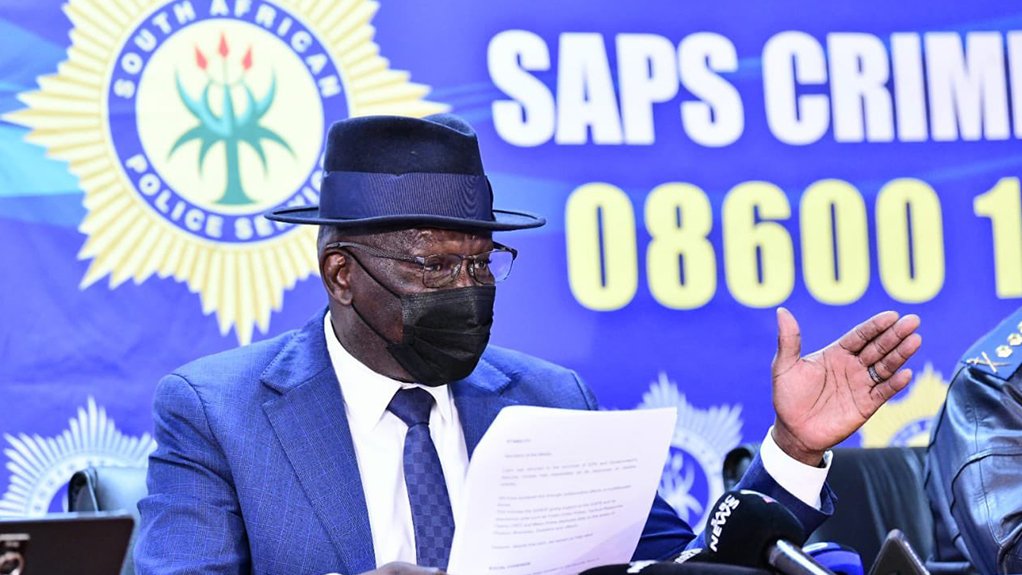Police Minister Bheki Cele claimed that he was shut out of police intelligence briefings and didn't receive any information ahead of last year's July unrest.
The unrest left more than 340 people dead in KwaZulu-Natal and Gauteng. The South African Human Rights Commission (SAHRC) is holding hearings on the unrest.
Cele has resumed his testimony. He first gave testimony in December.
On Monday, Cele said he last received intelligence briefings in November 2020 before the head of intelligence Lieutenant General Peter Jacobs was suspended.
Jacobs and five other divisional heads were suspended following a preliminary report by Inspector-General of Intelligence, Setlhomamaru Dintwe, into alleged personal protective equipment procurement irregularities regarding the Secret Service account.
Cele said he had not been informed before they were suspended.
He said once Peters was removed, he was shut out of intelligence briefings.
"I never again received any other communication… I think some deliberate decision was taken to not brief [me]," he said.
Cele said while he was never briefed when he received information from other sources, he tried to verify things with police management.
"There was no intelligence that was received by me… but I would have received something that I would think is info or intelligence. I tried to verify with the structures if this is real," he added.
Cele said one of the issues he tried to verify was threats made on social media against ministers and their families.
"There were names there that were very [active on social media] in making real calls. I remember one time there was one voice that was calling the names of the ministers… to say if we don't find them, we know where their wives and kids are. I was worried… I was told we were not very equipped to trace those things," he said.
Asked what he thought had caused the unrest, Cele said: "I would not have the authority to say these are the causes. Was I there when things were developing? Yes. Dark clouds were gathering. You could see it coming.
"The province, especially... KZN, had for some time had this sick political climate. The question of the former president, Msholozi, [had been] happening for some time."
He said he was one of the people who had realised that former president Jacob Zuma's arrest could lead to violence.
"Quite several people could have tried to stop if they could. I am one of those people who made himself available to speak to the old man. It was one of the things, to see if things could be stopped before they reached a boiling point," Cele said.
Once the Constitutional Court ruled that Zuma had to go to prison for not appearing before the State Capture Inquiry, things escalated quickly, Cele said.
"It just grew faster and... things were taking a wayward direction, including some mini-rally that happened in front of his house."
Cele said after Zuma was transported to Escourt prison by officers deployed from other provinces, he met with them to thank them. He said he realised there was tension in the province and asked the officers to stay.
"The arrest of the former president was one of those things that ignited what you saw happening there. Maybe one other thing was the preparation for that. Without any form of formal information, it was clear that something was coming. Preparation would have helped… to mitigate what would have happened."
The hearing continues.
EMAIL THIS ARTICLE SAVE THIS ARTICLE
To subscribe email subscriptions@creamermedia.co.za or click here
To advertise email advertising@creamermedia.co.za or click here











